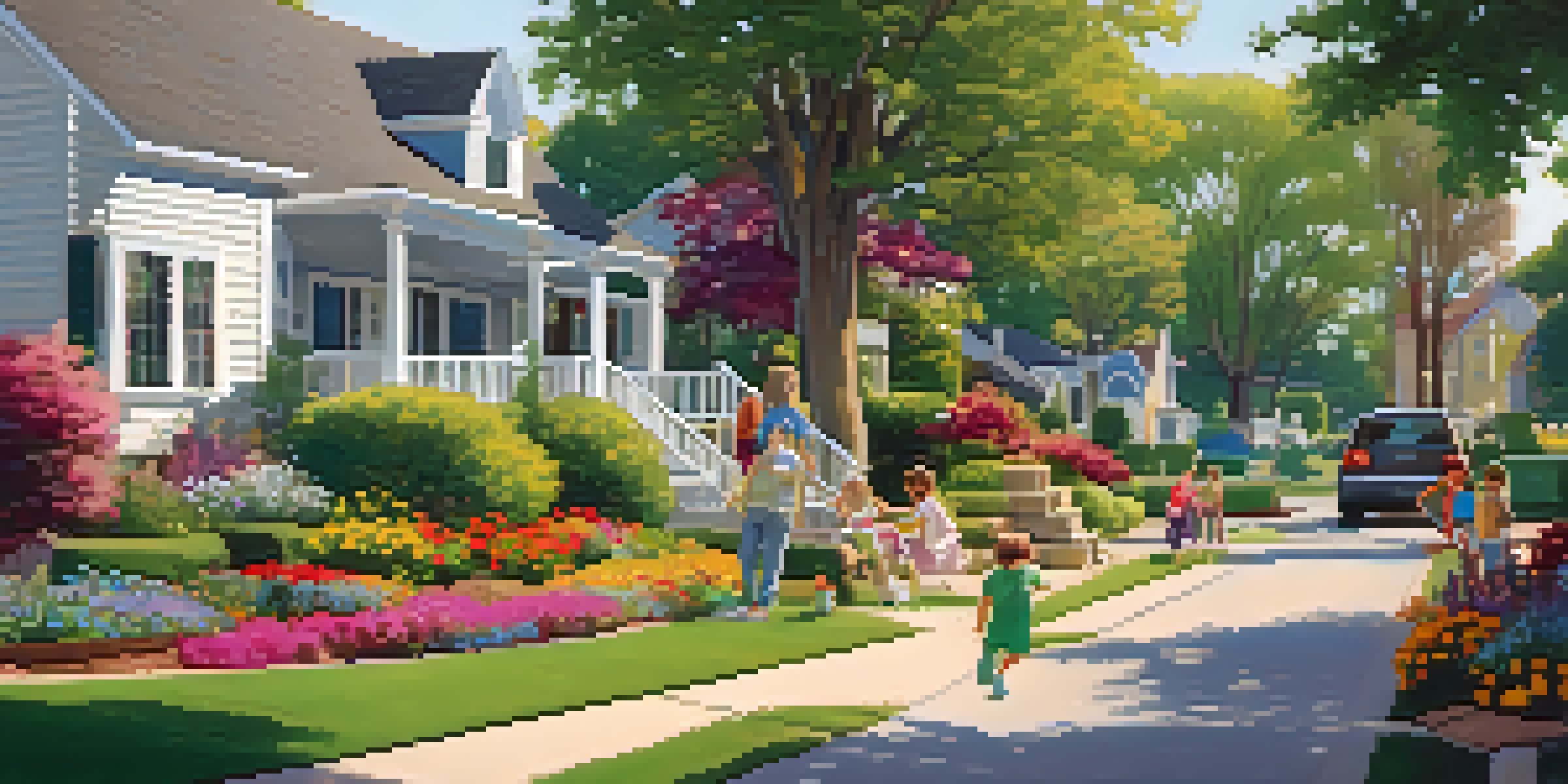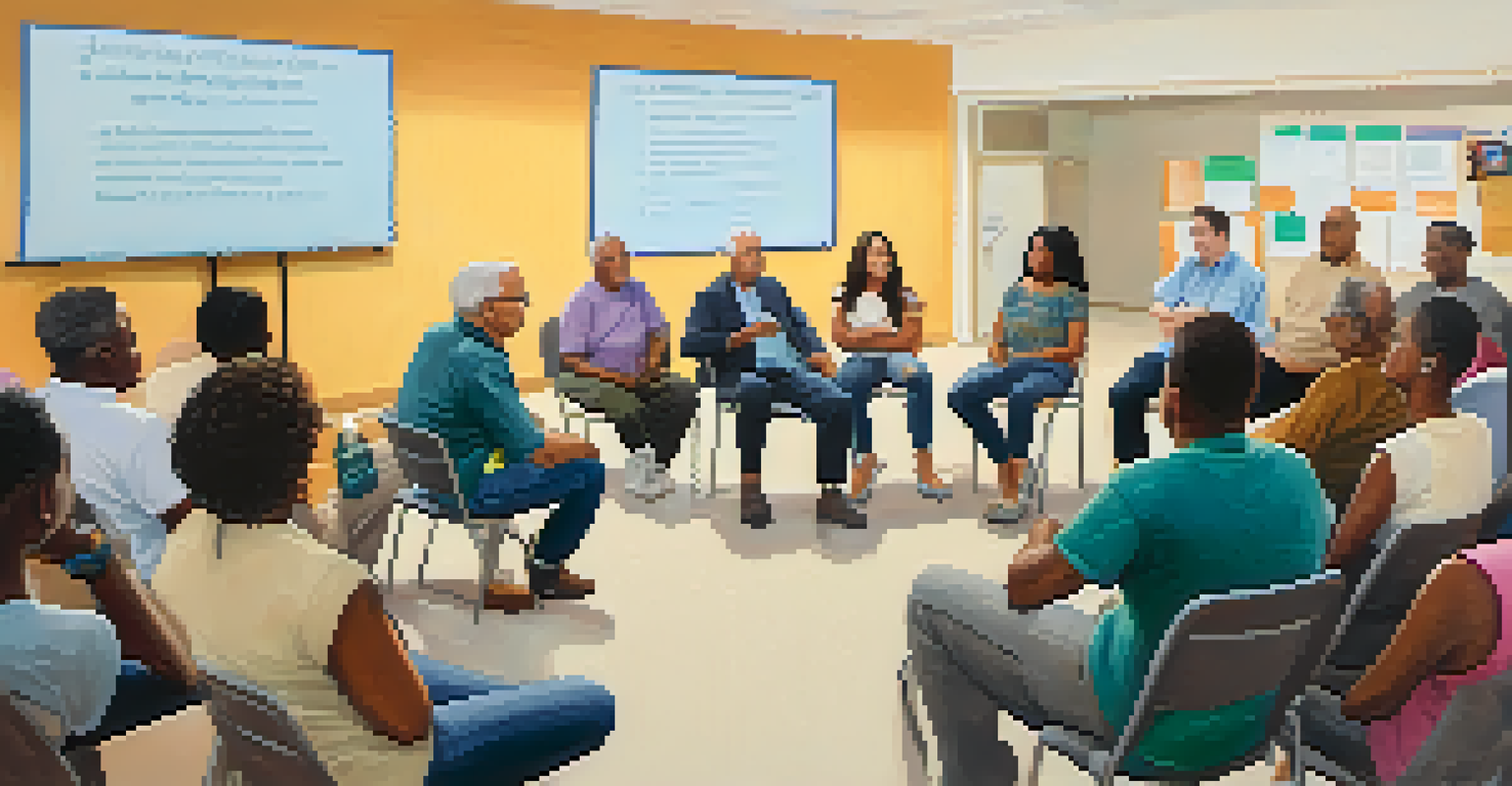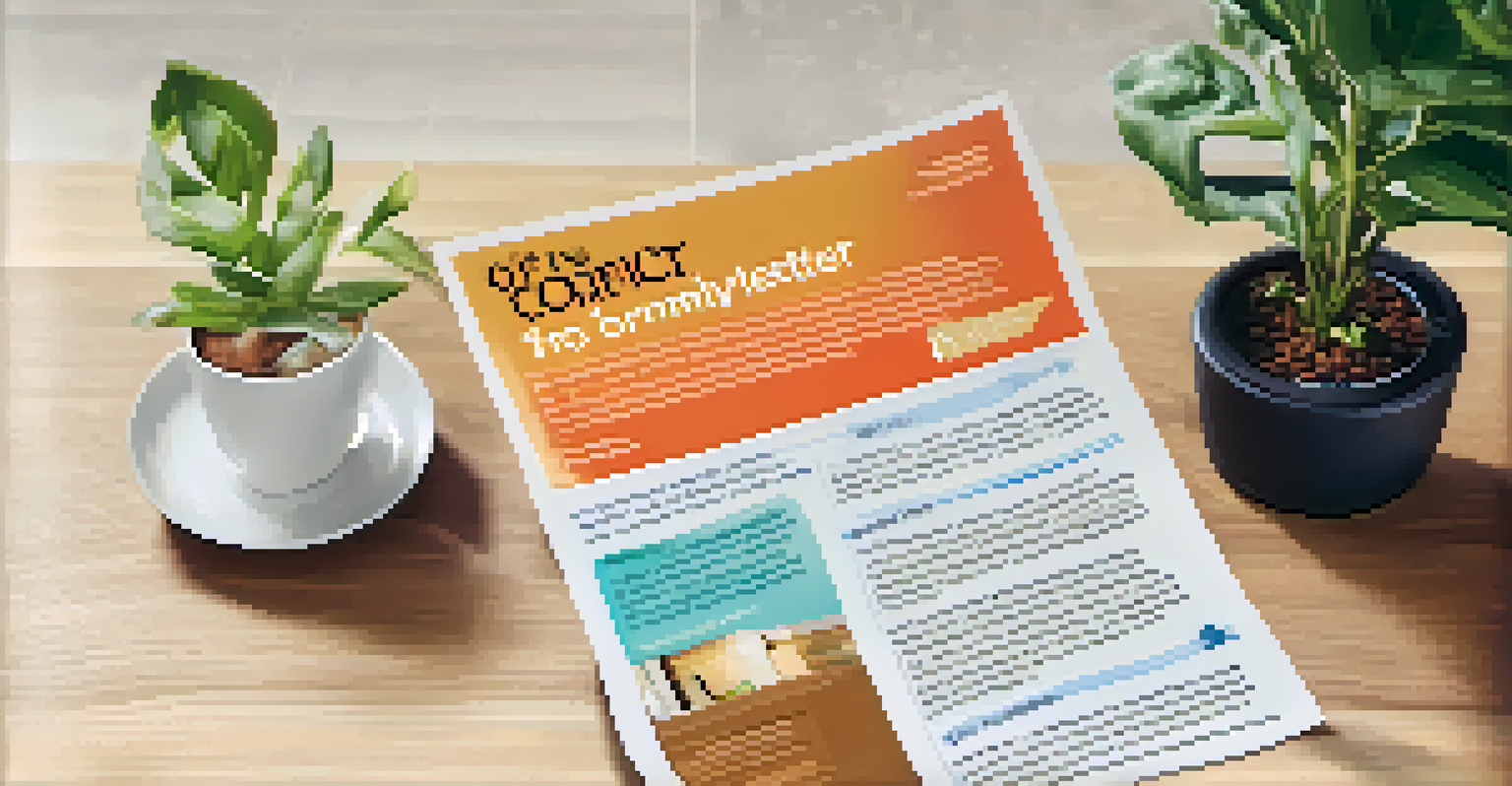The Role of HOAs in Managing Community Disputes

Understanding the Essence of Homeowners Associations
Homeowners Associations (HOAs) are organizations in residential communities that create and enforce rules to maintain a harmonious living environment. Think of them as the neighborhood's governing body, often comprised of residents who volunteer their time to serve. They help ensure that community standards are upheld, which can include everything from landscaping to architectural guidelines.
A strong community is built on the foundation of communication, understanding, and shared responsibility.
One of the key roles of HOAs is to promote a sense of unity among residents. By providing a structured way for neighbors to come together, they can foster relationships and encourage cooperation. This camaraderie can be especially beneficial in resolving disputes, as a community that knows each other is more likely to work together to find solutions.
In essence, HOAs don't just manage properties; they cultivate a sense of belonging, making them a vital part of community life. When conflicts arise, residents can turn to their HOA for guidance, knowing there’s a framework in place to help navigate these issues.
Common Disputes Addressed by HOAs
Disputes within communities can range from noise complaints to disagreements over property modifications. For instance, if a homeowner decides to paint their house an unconventional color, this might raise eyebrows among neighbors and prompt a dispute. HOAs often have specific guidelines that address such issues, helping to prevent conflicts before they escalate.

Another common area of contention can be landscaping choices. Imagine a resident who loves to garden versus another who prefers a minimalist approach; these differing preferences can lead to friction. Here, the HOA steps in to mediate, ensuring that both parties understand the community's standards and fostering a spirit of compromise.
HOAs Foster Community Unity
Homeowners Associations (HOAs) promote a sense of belonging among residents by creating a structured environment for cooperation and relationship-building.
By clearly outlining rules and regulations, HOAs can reduce misunderstandings and provide a reference point for resolving disputes. This proactive approach not only addresses current conflicts but also helps set the tone for future interactions within the community.
The Dispute Resolution Process in HOAs
When disputes arise, HOAs typically have established procedures to address them. This process often starts with informal discussions, where neighbors can express their concerns in a calm and respectful manner. HOAs encourage open communication, which can lead to quicker resolutions without the need for formal action.
Conflict is inevitable, but combat is optional.
If informal discussions don't yield results, the HOA may organize a mediation session, where an impartial party helps facilitate a constructive dialogue. This step is crucial, as it allows both sides to voice their perspectives and work toward a mutually agreeable solution. The goal is to resolve issues amicably, avoiding the stress and expense of legal action.
Ultimately, the dispute resolution process within HOAs emphasizes collaboration and community values. By promoting understanding and compromise, HOAs can strengthen relationships among residents and foster a more peaceful living environment.
Legal Framework Governing HOAs and Disputes
HOAs operate under specific laws and regulations that vary by state, providing them with the authority to enforce community rules. These legal frameworks not only outline the powers of HOAs but also protect the rights of homeowners. It's important for residents to be familiar with these regulations to understand how disputes may be addressed legally.
For example, many states have laws that require HOAs to follow due process when enforcing rules, such as providing notice before taking action against a homeowner. This ensures transparency and fairness, which are critical in maintaining trust within the community. Homeowners should feel empowered to know their rights when conflicts arise.
Effective Dispute Resolution Process
HOAs implement established procedures for resolving disputes, encouraging open communication and mediation to foster amicable solutions.
By understanding the legal context of HOAs, residents can better navigate disputes and engage more effectively with their community leaders. This knowledge fosters respect for the rules and encourages residents to participate in the governance of their neighborhood.
The Role of Communication in Conflict Resolution
Effective communication is the cornerstone of successful conflict resolution within HOAs. When residents feel heard and understood, they are more likely to engage in constructive dialogue. HOAs can facilitate this by hosting regular meetings and encouraging feedback, creating an environment where open discussions are welcomed.
Additionally, clear and consistent communication from the HOA regarding community rules and expectations can prevent misunderstandings. For instance, if new guidelines are implemented, sharing them through newsletters or community boards ensures everyone is on the same page. This proactive approach can significantly reduce the likelihood of disputes arising in the first place.
Ultimately, fostering a culture of communication helps build stronger relationships among residents and between the HOA and the community. When everyone feels comfortable voicing their concerns, it paves the way for smoother resolutions and a more cohesive neighborhood.
Benefits of HOA Mediation Over Litigation
Mediation through HOAs offers numerous benefits compared to traditional litigation. For starters, mediation is often faster and less expensive than going to court, allowing residents to resolve disputes without the financial strain. This is particularly advantageous for community members who might be hesitant to engage in costly legal battles.
Moreover, mediation allows for more flexible solutions tailored to the unique circumstances of the dispute. Unlike court rulings that may impose rigid outcomes, mediation fosters creative problem-solving, enabling both parties to find a resolution that satisfies their needs. This collaborative approach can lead to stronger community ties as residents work together to overcome challenges.
Education Empowers Residents
Educating homeowners about HOA rules and conflict resolution strategies enhances their ability to navigate disputes and fosters a collaborative community spirit.
By choosing mediation, HOAs can help maintain harmony within the community, preventing lingering resentment that often accompanies litigation. This not only benefits the individuals involved but also enhances the overall atmosphere of the neighborhood, creating a more pleasant living environment for everyone.
Empowering Residents Through Education
Educating residents about the role and responsibilities of HOAs is vital for effective dispute management. When homeowners understand the rules and the process for addressing conflicts, they are better equipped to navigate disputes. HOAs can offer workshops, informational brochures, or online resources to help residents familiarize themselves with community guidelines.
Additionally, promoting awareness about conflict resolution strategies can empower residents to address issues proactively. For example, residents can learn effective communication techniques that can help them engage constructively with their neighbors. This empowerment not only helps individuals feel more confident but also contributes to a collaborative community spirit.

Ultimately, a well-informed community is better prepared to handle disputes, leading to more effective resolutions and a stronger sense of unity. By investing in education, HOAs can foster a culture of understanding and cooperation, benefiting everyone involved.
Conclusion: The Vital Role of HOAs in Community Harmony
In conclusion, HOAs play a crucial role in managing community disputes and promoting harmony among residents. By establishing clear guidelines, facilitating communication, and providing conflict resolution processes, they create a framework for addressing issues before they escalate. This proactive approach not only benefits individuals but also strengthens the community as a whole.
The presence of an effective HOA can transform a neighborhood into a cohesive environment where residents feel supported and connected. As homeowners engage with their HOAs, they contribute to a positive community culture that values collaboration and understanding.
Ultimately, HOAs are more than just governing bodies; they are integral to the well-being of communities. By embracing their role in conflict resolution, they help ensure that neighborhoods remain places where everyone can thrive.